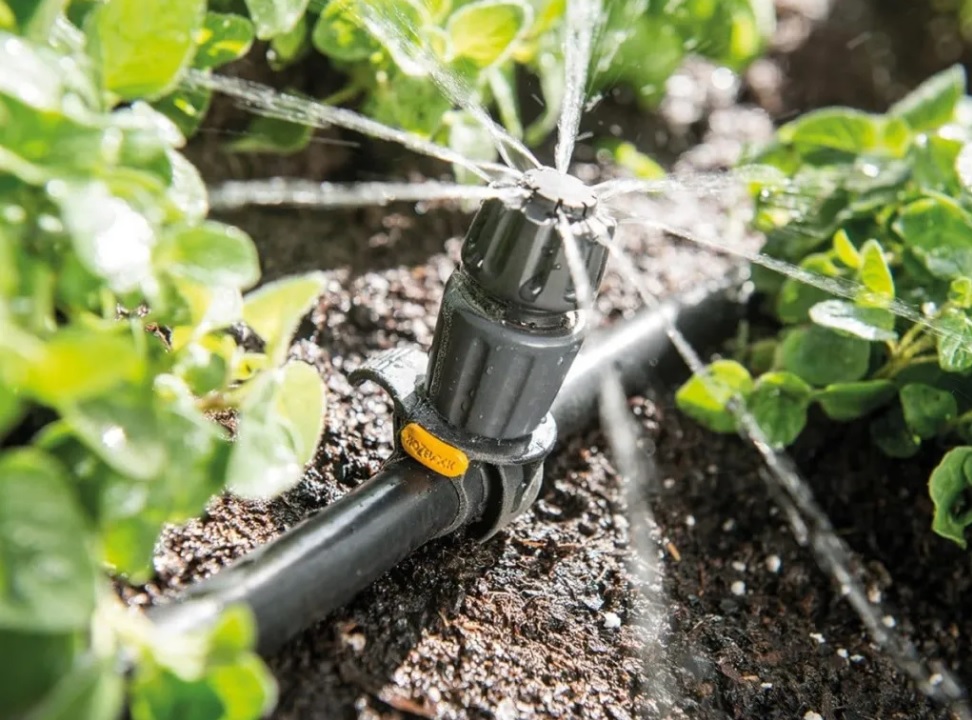
The importance of watering plants with gray water
Irrigation of plants with gray water is one of the most important benefits obtained by installing a gray water treatment plant. Whatever your water source, grow plants that produce food, provide habitat for wildlife, or create other useful uses such as mulch, fertilizer, fuel, or building materials.
In general, large plants such as trees, shrubs, and perennials are considered. Easier to water with simple gray water systems than with young plants.
A lawn made up of hundreds of individual plants is the most difficult to water with gray water. Remember, you can safely irrigate any food plant as long as the gray water does not touch the edible part of the plant (no root crops).
Fruit trees
Most fruit trees thrive on the greywater, and there are so many delicious options! They can tolerate frequent watering and once established they can go long periods without water.
Choosing a Fruit Tree: To start, use rootstock that is resistant to local diseases and plant trees that are known to grow well in your area. Your tree will also do better if it has good soil in it; It may be helpful to add compost.
Drainage: Next, consider the drainage of your site. If the drainage is poor, you will need to plant the tree on a mound and reduce its watering to prevent diseases such as crown rot. When planting trees, make sure the crown of the tree is above the mulch basin to prevent crown rot.
Salt: Fruit trees in general are sensitive to salt and should not be watered with water from powdered detergents or other products that contain salt. If your gray water source contains a lot of salt (dishwasher detergent, for example, is high in salt), add salt-tolerant plants to your landscaping, or irrigate frequently with rainwater to flush salts out of the soil. Plants that thrive on recycled or reclaimed water (highly treated wastewater) are good choices for high-salt gray water. It is best to use plant-friendly products, low in salts and free of boron, to ensure the quality of the irrigation water.
Other plants
Other perennials that thrive on gray water include edible shrubs and vines such as raspberries, cranberries, blackberries, and their relatives, apricots, gooseberries, filbert, rhubarb, elderberries, pomegranates, kiwi, hops, and grapes. Blueberries love acidic soil, so you should choose a pH-neutral soap or use an acidic mulch.
Water at the “drip line” of your plants
The plant’s roots usually extend beyond the “drip line,” which is the outer edge of a branched branch. Dig a mulch basin at or beyond the drip line and direct the gray water into the basin.
Determine how much water your plants want
Design your own simple gray water system directing the right amount of water to each plant; Too much watering may result in waterlogging of the soil while too little may cause the plants to dry out. When designing your system, be sure to consult more resources for outdoor irrigation, for more detailed instructions on how to determine plant water requirements.
Approximate weekly watering needs for a medium-sized fruit tree:
Cool climate: 8-12 gallons/week
Warm climate: 15-25 gallons/week
Hot climate: 30-50 gallons/week
How to irrigate with gray water
With a simple gray water system, for example, a wash-to-landscape system or a branch drainage system, the gray water should be drained over a mulch (either on the roof or under the roof depending on your state code requirements). Do not drain gray water directly onto the exposed ground, as it can clog the soil by filling in the small air gaps in its structure and then it will not drain well. Mulch prevents this potential problem because it filters out particles, allowing gray water to soak into the soil below. Any type of mulch works, such as wood chips, straw, or bark.
More sophisticated greywater systems filter the greywater so that it can be used in greywater-compatible driplines. In these systems, irrigation pipes are used for irrigation as in a conventional system and can be covered with mulch.
Advantages of simple gray water systems in agriculture
There are many reasons to focus on greywater treatment. Among these factors:
- Scarcity of alternative water sources for irrigation.
- The high cost of industrial fertilizers.
- Demonstrate that risks and soil damage are minimal if precautions are taken.
- The high cost of advanced wastewater treatment plants.
- Social and cultural acceptance of the practice.
- Recognition by water resource planners of the value of practice.
























